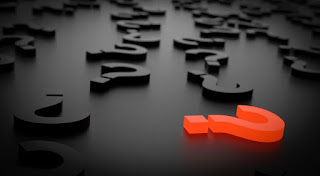Thing 18: Relfecting on Critical Thinking
Perhaps inevitably, given that I'm a librarian, I really enjoyed completing and reflecting on the tasks for the Critical Thinking section of Rudai23.
For Thing 14 Personal Information Management, I attempted to impose order on the information that forms part of my everyday life, both at home at at work, using Evernote and tried out Pocket and Feedly. Here's what I thought.
My task for Thing 15: Evaluating Information was to add a citation to Wikipedia. Find out how I got on.
Following on from the advice Brian Hickey gave in Thing 16: Your Digital Footprint, here are the measures I have taken to protect myself online.
- I avoid giving any personal information online except to trusted sources, and even then it's the bare minimum. I avoid posting photos of my personal life online especially of my children - I am conscious that they cannot give consent to this and their digital footprint should be their responsibility. I use a WhatsApp group to share photos with family and friends rather than social media, as it is encrypted - though being owned by facebook, I am watching for changes there! I don't use Facebook messenger at all. My facebook and Instagram accounts are private to anyone except my friends.
- I don't download illegal software or stream content from sites I am unfamiliar with. I listen to music using a Spotify subscription, soundcloud and Bandcamp.
- I wasn't aware of the threat of connnecting to spurious wi-fi hotspots. I'll be more vigilant of this in the future.
- I thought I was pretty security and privacy conscious but a digital marketing conference I attended in 2016 was an eye-opener. I deleted the facebook app from my phone, double-checked my privacy settings, deleted some information from my profile. I stopped the practice of signing up to unrelated websites or apps using my facebook or google account. I started to question why apps need certain permissions and refused to give permission unless the app wouldn't function without it. I never leave my GPS on.
While choosing a task for Thing 17: Sharing your work, I was a little dismayed to realise that the last presentation I delivered (on Dublin City Public Libraries' Dublin Buildings Project) was at the LAI's Library Success Stories in 2011. Although the project could still be replicated by another library authority, I am conscious that nearly seven years have elapsed since then. I am undecided over whether I will upload this PowerPoint presentation to Slideshare or not. Those seven years have been busy ones, both at work, where exciting new developments and staff resourcing issues meant finding time for anything other than core work was very challenging; and at home, becoming a parent to my two children. Now that things are starting to settle down a little on both fronts, I feel I have some time to commit to this important area.
I would like to present at another Library Success Stories. The act of sharing information, experience and best practice is very much aligned with the aims of librarianship. The presentations are informal and only twenty minutes long, and the audience, comprising public librarians, is friendly. I would like to present on either getting started with recording and podcasting your events, or using video to promote your special collections, two things I really enjoy doing at work - I am not sure whether some of my efforts could be considered successes though. I see these projects as having multiple aims that align with several objectives of of Public Libraries' development plan. All the reflective practice with Rudai23 will certainly influence and inform future presentations. I will be more critical of the projects I've worked on. In relation to the two ideas I've listed above, I'm already thinking how difficult it is to gauge their success, to know if they offer a worthwhile return on investment (staff-time), as measuring their success is mostly restricted to numerical analytics.
To conclude, critical thinking and evidence based judgements are core elements of a librarian / information professionals' work. We've been banging on about this CRAAP long before it went mainstream in an era of social media and fake news. Every day people visit public libraries in search of reliable reference sources, from children and teens researching school projects to adults researching for business, health or local history. I wonder though, is critical thinking an intrinsic skill of public librarians? Is it something we feel comfortable talking to our patrons about? Is training needed in this area? I think it may be worth investigating whether a more structured approach to information literacy, as in academic and special libraries, could translate into a public library setting? Lots of questions and lots of food for critical thought.


Comments
Post a Comment